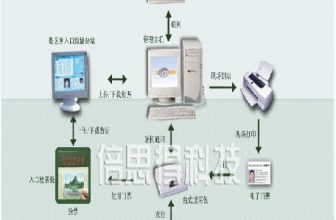
RFID technology applied to Washington State baseball game management ticket
[ad_1]
The large-scale baseball game in Washington State uses RFID technology to manage tickets, and is also used to buy food and beverages, enjoy discounts, points and other special treatments. The use of high-frequency RFID tickets greatly reduces the time for spectators to enter the competition area and eliminates the trouble of queuing. The RFID system is provided by Fortress GB, a British technology company that has turned to the sports and entertainment industries to provide technology. Approximately 300 RFID ticket holders were included in the season as a pilot. By the 2013 competition, the organizers plan to use RFID technology for all tickets.
Baseball enthusiasts holding RFID tickets have a much shorter check-in time for entering the stadium than those holding regular tickets. In addition, the ticket can also be used for payment and points. RFID readers and barcode scanners are installed at the front gates of the park, food stores and shops. In terms of software, logging into the system can realize functions such as online payment, recorded consumption information, and receiving points.
The RFID function card is provided by Fortress GB, which includes the MIFARE 13.56 MHz RFID chip of NXP Semiconductors (in accordance with the ISO 14443 standard). Fortress GB has assembled a series of read-write components into a dual-purpose reader that integrates reading RFID tags and barcodes. As soon as the tag ticket enters the reading range, its ID is read and forwarded to the Fortress GB back-end system. After the code is verified, the turnstile opens automatically. At the same time, the database records the ticket checking events of the audience and generates points. When the points reach a certain value, they can be exchanged for hot dogs, sodas, tickets, etc., and customers will be prompted by information at that time.
In many cases, the ticket printed by the tourist is just an ordinary ticket with a barcode. Tourists enter the ticket gate with a ticket, the RFID reader cannot detect the RFID tag, and the barcode scanner scans the barcode, and the ticket can also pass the ticket.
At present, a total of 45 readers are installed at the entrance of the park, in the park’s shops, and restaurants. Visitors enter the park with RFID tickets, which can be used to purchase goods directly, and the paid amount will be deducted from the prepayment account.
All RFID exchange data, including the records of passing tickets and consumption behaviors, are stored in the database of the back-end system, and the system administrator can obtain the data in real time. Through portable computing devices such as ipads, information such as the number of tourists and the speed of ticket checking can be obtained anytime and anywhere.
By 2013, stadiums that can hold 41,500 spectators will sell RFID tickets through the website. After the audience gets the ticket, they can log in to the system, modify the user information, and create a prepaid account, and transfer the money from the credit or debit card to the account associated with the RFID tag code for consumption payment in the park . Customers who have opened an account can receive promotional information and accumulate credit.
The ticket system based on RFID technology has been applied in 115 stadiums, and approximately 20-25 people can pass every minute. Payment and points are just additional functions of the system, and of course it is also the development trend of the application. Currently, the Red Bull Arena in New York is also using this solution.
[ad_2]




